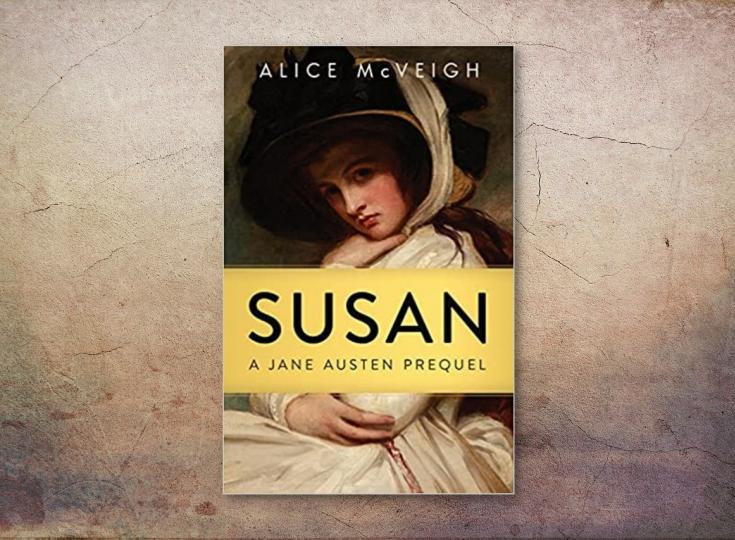Editorial Review: Susan, A Jane Austen Prequel by Alice McVeigh

Alice McVeigh’s joy and affection for the world of Jane Austen shine through in her entertaining prequel, Susan.
There’s no pre-requisite for a reader of Susan to be familiar with the classic works of Jane Austen to enjoy McVeigh’s exploration of a world beloved to millions of Austen fans. But those whose Austen experience is firmly focused on Pride and Prejudice should be advised that Susan is set some five years after the enduring tale of Miss Elizabeth Bennett and Mr Fitzwilliam Darcy.
McVeigh’s novel is focused on the teenage years of Susan who is the lead character in Austen’s lesser-known work, Lady Susan. It was a complete novel but one that Austen never submitted for publication, and which has few parallels in literature of the time as Lady Susan is beautiful, intelligent, witty, and unashamed of morals that were significantly atypical of women depicted in the period.
The young Susan is appropriately unconventional. Expelled from school for flirting with the music master she cleverly exploits every opportunity to enhance her social standing in a world where marrying “up” is one of the greatest ambitions—especially for destitute young women of gentle birth but no inheritance.
Susan manipulates those around her with a wisdom beyond her years. She employs all the assets of a pretty face, charming manners, and calculated innocence to improve not only her own social prospects but those of her beloved (and far more conservative) cousin. Throw in a dashing rake with roving eyes on the catch for a rich bride, an impoverished but charming fellow, a wealthy widower with a penchant for a pretty young thing and his unambitious son; then add the feverish excitement of amateur theatricals and there are all the ingredients for a merry romp.
There is no bodice-ripping, steamy antics, deep poverty or terrible angst. But there is the deft touch of commentary on the stifled life and restrictive constraints on the life of young women in the period that is true to Austen and the slow burn of suppressed passion and desperate romance.
Stern perfectionists will identify flaws in the timeline and question the probability of some events—McVeigh acknowledges that she has taken a few minor liberties in order to weave her own story. But those merely fond of Austen are unlikely to criticize the way the author has handled the incorporation of familiar characters such as the overly proud and entitled, Lady Catherine de Bourgh.
Most importantly, readers who enjoy a well-told regency tale in the classic style of Austen will be enchanted. McVeigh’s Susan has appropriate authenticity of language, event, and behavior to capture the transitional nature of the Georgian era with its first whispering of feminism and the sweeping change brought by the industrial revolution and new wealth of those in trade rather than the elite few born to nobility.
Regency readers will find Susan both enjoyable and entertaining; her naughty flouting of the rules walks the tightrope of remaining cheeky and endearing while hinting at the colder, self-centered woman that is depicted by Austen in Lady Susan.








